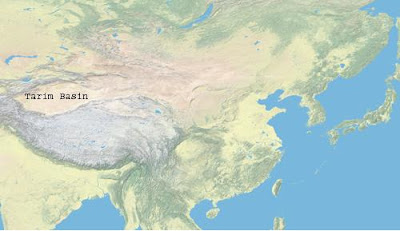Constitution
Penn Asian
Review Constitution
Article I: Name
The name of the
organization shall be Penn Asian Review.
Article II:
Purpose
The purpose of
Penn Asian Review is to provide a forum for Penn undergraduates to
intellectually discuss all aspects of the Asia-Pacific region. The Review consists of an open weblog
forum and a semi-annual publication.
The weblog forum aims to provide an informal platform for students to post
comments while the journal publication will include academic papers, features,
analysis, editorials, and other pertinent material. Thus, the group seeks to promote intelligent awareness of
current events and long-term issues of the region through serious discourse.
Article III:
Officers
1. The officers of the group shall consist
of an Editor-in Chief and the Editors of the editorial, business, and design
groups.
2. The Editor-in-Chief is the chief
executive of the Penn Asian Review and is ultimately responsible for the
business, the journal publication and the weblog. The Editor-in-Chief has the final say on all matters and is
responsible for coordinating all departments of the organization.
3. The Business Manager is the head
manager of the Business Department, and is responsible for the Finance,
Marketing, and Outreach Managers and should always know all business
operations, such as recruitment, distribution, and solicitation of
materials. The Business Manager
reports back to the Editor-in-Chief all financial and marketing matters
concerned with the Review. The
Business Manager reports to the Editor-in-Chief.
4. The Finance Manager is in charge of all
finance related aspects of the organization, such as the solicitation of grants
and distribution revenue. The
Finance Manager is responsible for pursuing SAC funding and representing the
club at SAC meetings. The Finance Manager should work closely with the
Advertising Manager and should report back to the Business Manager.
5. The Advertising Manager is responsible
for all marketing aspects of the Journal, such as selling ads and marketing the
journal to the student body. The
Advertising Manger should work closely with the Finance Manager and should
report back to the Business Manager.
6. The Outreach Manager is responsible for
making and maintaining connections with professors and speakers. The Outreach Manager reports back to
the Business Manager.
7. The Managing Editor is responsible for
all operations within the editorial side of the organization, which includes
the Editor and the Design Editor.
The Managing Editor reports back to the Editor-in-Chief.
8. The Design Editor is in charge of the
layout of the Journal and reports directly to the Managing Editor. The Design Editor is also in charge of
making posters and ads and should work closely with the Advertising Manager.
9. The Editor is in charge of the process
for selecting articles for the Journal, which involves collecting the articles,
notifying all writers of the selection process, and facilitating the editorial
process. The Editor reports to the Managing Editor.
10. The Webmaster is in charge of the
layout of the website as well as maintaining the website. The Webmaster reports back to the
Editor-in-Chief.
11. The Blog Editor is in charge of all
online articles, including mediating comments. The Blog Editor reports back to the Webmaster.
12. While the Editor-in-Chief has the final
say on all matters regarding the organization, in case of a dispute, the
Editor-in-Chief has the responsibility to consult with the Faculty Advisor.
13. In instances when it is not possible,
or desirable, to find separate people to assume each of the responsibilities
enumerated above, members may take on dual responsibilities.
14. All officers must have access to the
Review’s email and web account Penn.Asian.Review@gmail.com.
15. The faculty advisor is Dr. Siyen Fei.
The officers of the club will be responsible for keeping her updated on
developments and going to her for advice when needed.
Article IV:
Members
1. Membership in this organization shall
be open for application from all undergraduate students in good standing
currently enrolled in the University of Pennsylvania, regardless of race,
creed, color, sex, sexual orientation, or physical ability.
2. Membership is valid following
successful completion of a review for which the requirements are set by the
Editor-in-Chief. Although membership remains valid throughout the career of a
Penn undergraduate, the Editor-in-Chief has full discretion regarding who is to
be named on the masthead of the publication itself and on the weblog unless
otherwise noted.
3. Members will be on the editorial board,
business team, or design team, and may assume multiple duties. It is important
to remember that for different jobs, members may need to report to different
officers.
4. Membership for new applicants must be
approved by the Editor-in-Chief, and may be revoked at any time by the same
unless otherwise noted.
5. Any member, with the exception of the
Editor-in-Chief, may resign at any time by filing a written resignation to the
Editor-in-Chief. If the Editor-in-Chief wishes to resign, he/she must find a
replacement from within the organization who voluntarily agrees to accept the
vacated position and all of its attendant responsibilities. Further, resigning
from the organization forfeits the right to rejoin.
Article V:
Elections
1. A new board of officers must be
appointed every calendar year, and elections will be held in January for
appointments through the following year. All members may participate in voting.
2. Any member may self-nominate for an
officer position as long as he/she belongs to the team the position is in
charge of (editorial, business, or design).
Article VI:
General Meetings
Meetings of this
organization shall be held on a regular basis for the purpose of determining
policy, activities, programs, and other relevant matters.
Article VII:
Amendments
Amendments to
this Constitution must be discussed and agreed on by a majority of the
membership of the organization.


Comments
Post a Comment
We follow the House Rules as outlined by the BBC here.